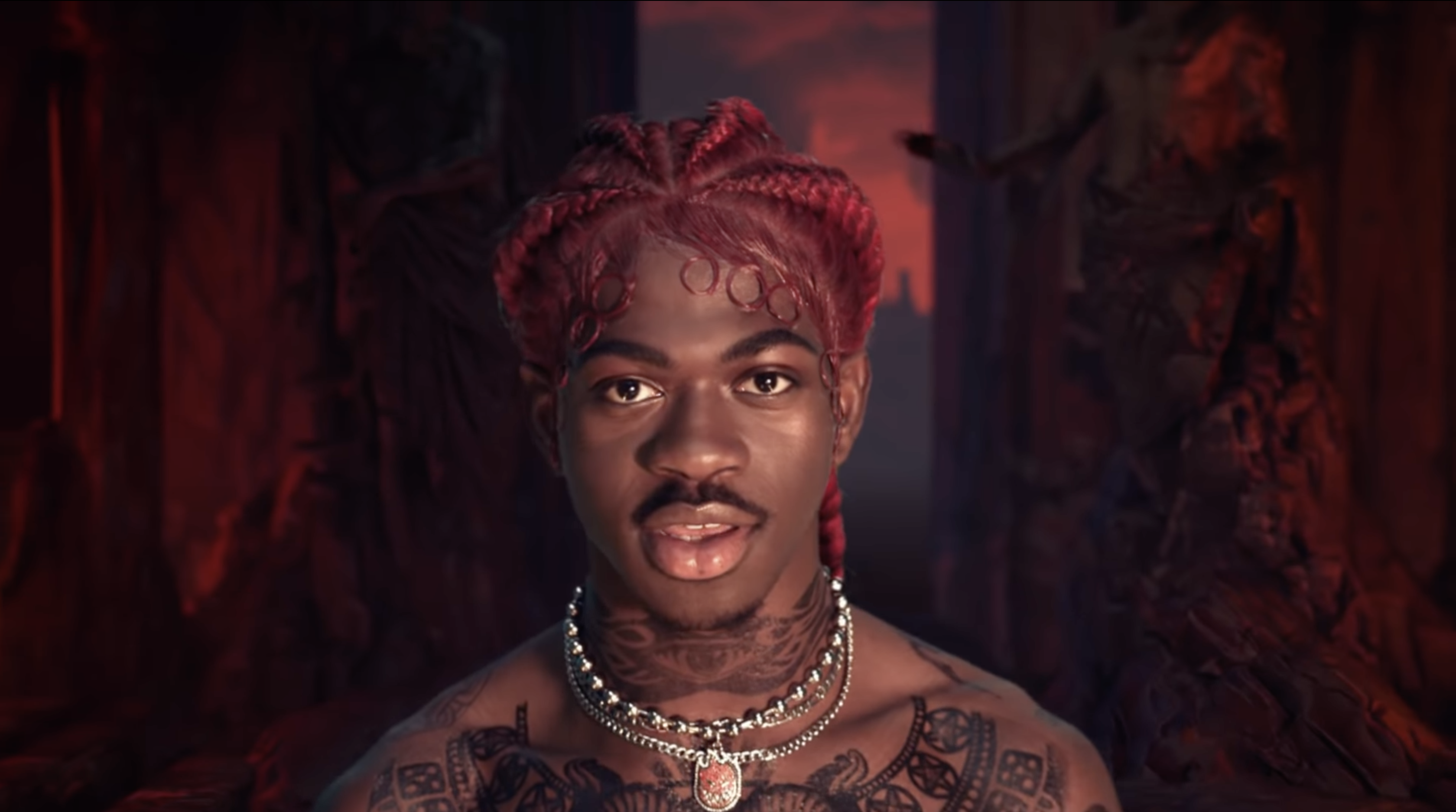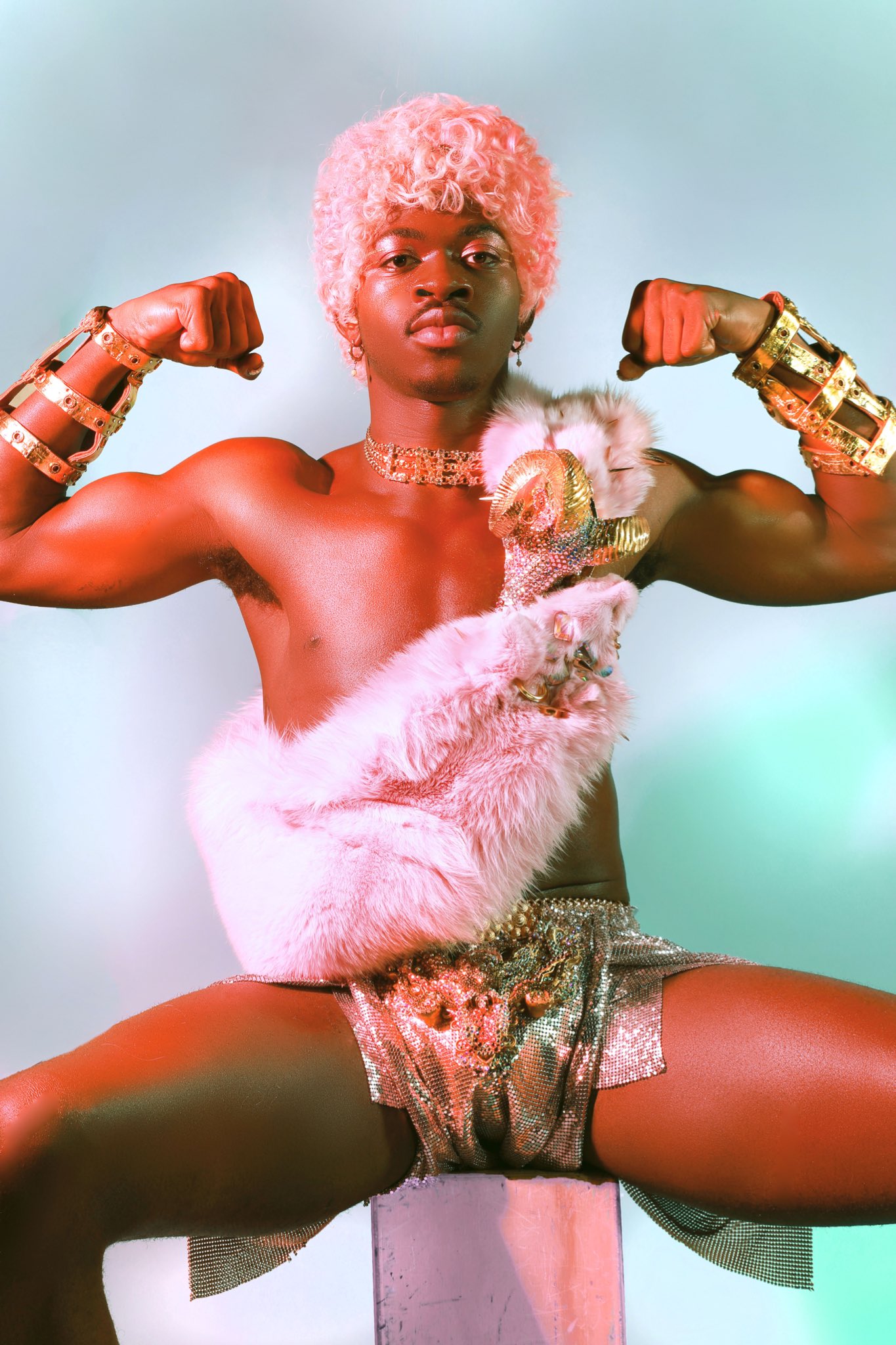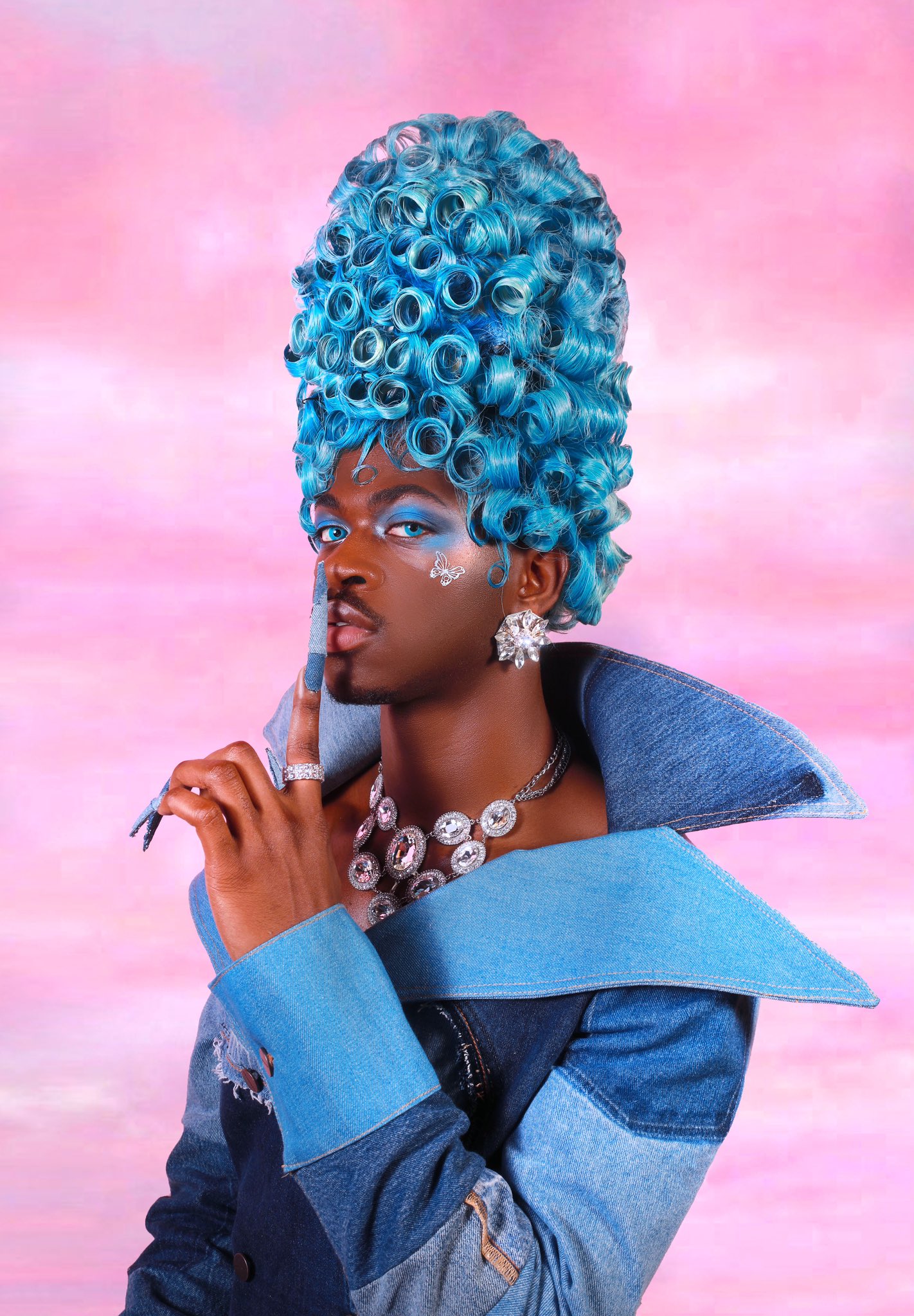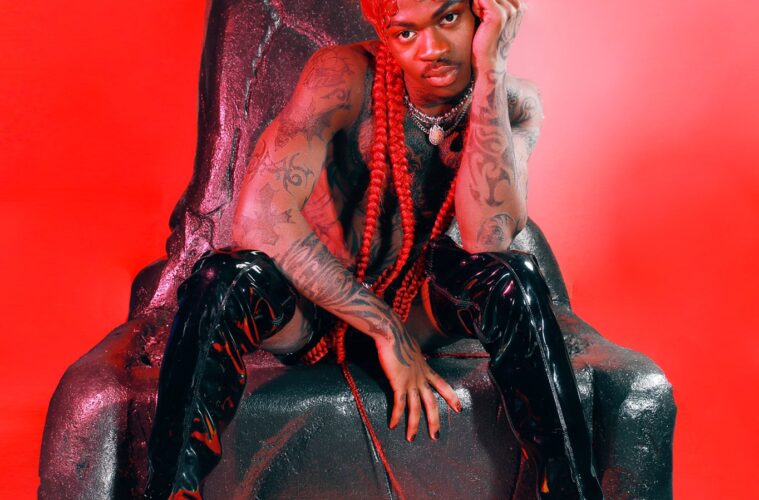After months of anticipation, Lil Nas X finally dropped his song MONTERO (Call Me By Your Name) alongside a trailblazing video that has sparked many different conversations throughout social media. On the one hand, conservatives are critiquing its controversiality but, on the other, the queer community has found a source of great inspiration.

Vevo.
On July 9, 2020, Lil Nas X uploaded on Twitter the snippet of an unreleased song with the caption “CALL ME BY YOUR NAME ☎️❣️”. This nearly-40 seconds teaser gathered 18 million views on the social media app and thus generated much anticipation among his fans. Towards the end of July, Rihanna herself said the song was “bangin'”, that Lil Nas X was killing it [in the industry] and that she was happy for him.
On March 26, after months of him teasing and fans begging him for the single –which even included a Super Bowl commercial featuring the song– Lil Nas X released MONTERO (Call Me By Your Name) with a powerful and profound music video.

Vevo.
To some, the multi-layered production may seem overly explicit and ‘on-the-nose’ on the surface. But it’s actually genius. In the video he co-directed himself, together with Tano Muino, he is referencing Greek mythology and biblical tropes, as well as some pop culture along the way.
It begins by showing a fantastic world as an allusion to the Garden of Eden. In a voiceover, Lil Nas X says:
“In life, we hide the parts of ourselves we don’t want the world to see. We lock them away, we tell them no, we banish them. But here? We don’t. Welcome to Montero.”
A lot happens narratively in the 3-minute video, including several metaphors and hidden meanings. The name of the otherworldly land itself, “Montero”, is also Lil Nas X’s given name. Here, in Montero, he is fully free to be himself, so this Garden is a metaphor for his identity, for embracing his queerness.

Source: Lil Nas X’s Twitter account.
Griffin Maxwell, the queer, non-binary TikTok personality summarized the video’s impact in a tweet:
In reality Lil Nas X is one of the first queers in the mainstream spotlight to ever embrace his sexuality in such an overt, confident, and powerful way… he is paving the way for so many young artists and queer people in general. pic.twitter.com/XHUGU1nNrj
— Griffin Maxwell Brooks (THEY/THEM) (@GriffinMaxwellB) March 26, 2021
Since the title features the phrase “Call Me By Your Name”, it’s inevitable to relate the lyrics to the 2017 film of the same name, although the film is controversial for other relevant concerns. In both the film and the song’s lyrics, we have a protagonist that is always at his lover’s beck and call, even if their lover ‘lives in the dark’ and only tells the protagonist he loves him while in private.
As he is singing under a tree, a serpent-like human figure approaches him, symbolizing the sinful, devilish snake that tempted Adam and Eve to leave the Garden. Usually, conservatives use the argument that ‘God created Adam and Eve, not Adam and Steve’ to argue that homosexuality is unnatural and wrong. Lil Nas counters this by presenting himself fully confident in his queerness in this reimagined Garden. Instead of giving him an apple, the snake kisses Lil Nas X, a gay kiss that could connote what religions claim to be a sin. This would explain why Lil Nas X is later trialed in a colosseum, where he is stoned to death – a practice carried out against gay people in humanity’s recent past.
In his many representations, since he acts as all of the video’s characters, Lil Nas shows a versatility to queerness. He shows there are many ways of being queer. He acts as the long-nailed guards in the coliseum dressed in blue denim and wigs while the main Lil Nas X wears small pink garments. This could also allude to the gendered conceptions regarding the colors, claiming one is for boys while one isn’t, which he contradicts while breaking gender norms.

Source: Lil Nas X’s Twitter account.
As suddenly as Nas begins his ascension to heaven, an arrow is shot at his back, which he grabs and uses to his advantage. This can symbolize the fact that conservatives tend to say queer people won’t be able to reach Heaven.
The arrow turns into a giant pole on which he sensually dances as he descends to Hell, wearing only Calvin Klein underwear, a pair of shiny thigh-high black boots, and a braided long red-haired wig.
Upon arrival to hell, he looks for the Devil and seduces him. Taking the sensual scene with the devil, for instance, we could argue Nicki Minaj did the very same thing in the video for Anaconda which was also criticized because it was a woman owning her sexuality. Similar to the controversy the WAP video recently caused. In this case, it’s a gay man, so the scene is bound to make people speak. 
After the sexy dance, Lil Nas X kills the Devil and steals his horns. Here, not only did he take the power back by choosing how he would to go to hell, but also by becoming its king. This can imply gay men and queer people are allowed and capable of thriving in life, or more specifically in the music industry, which has lacked LGBT+ perspectives and songs until this last decade.
Regarding the song and video, in an emotional letter to his 14-year-old self, Lil Nas X wrote:
— nope ? (@LilNasX) March 26, 2021
You can watch the full video below:


